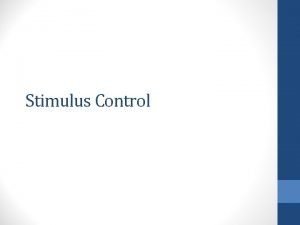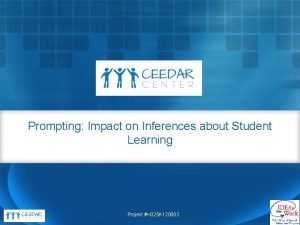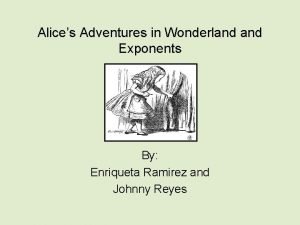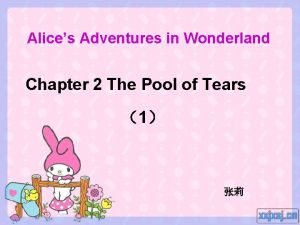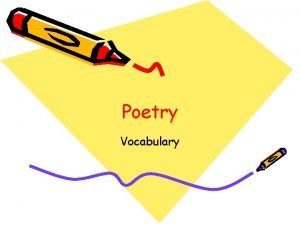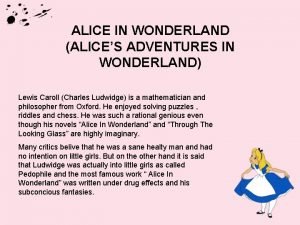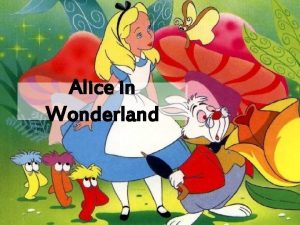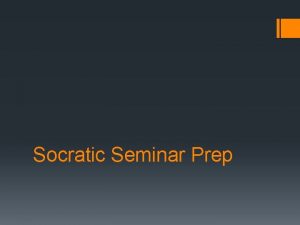Socratic Seminar Prompt 2 Alice in Wonderland Alices





- Slides: 5

Socratic Seminar Prompt #2 – Alice in Wonderland: Alice’s Adventures in Wonderland (and Through the Looking Glass ) is a narrative that is built on a foundation of syntax, specifically with its extensive use of SYLLOGISM. Parallels abound on multiple levels from the symbolic down to the syntax (think PARALLELISM and CHIASMUS). By analyzing Carroll's use of syntax, it is apparent that Carroll is exploring the logical underpinnings of nonsense versus common sense. What do you think Carrol is rhetorically demonstrating to his audience through this exploration of logic in linguistic form?

An example of what passes as common sense as being actual nonsense: • If an animal growls when it’s angry and wags its tail when it’s pleases, then it is sane. • Consider that the Cheshire Cat does not growl when it’s angry and down not wag its tail when pleased. Therefore, it is not the sane. • This is not logical because the syntax results in an INVERSE ERROR, also known as the fallacy of Denying the Antecedent:

Denying the Antecedent Fallacy Arguments of this form are invalid. Informally, this means that arguments of this form do not give good reason to establish their conclusions, even if their premises are true. The name denying the antecedent derives from the premise "not P", which denies the "if" clause of the conditional premise. One way to demonstrate the invalidity of this argument form is with an example that has true premises but an obviously false conclusion. For example: If you are a ski instructor, then you have a job. You are not a ski instructor Therefore, you have no job.

Example of perfectly good sense • If you are in Wonderland, then you are mad. • I am in Wonderland, therefore I am mad. • Alice is in Wonderland, therefore she is mad. • Alice says she is not mad • If she is not mad, then she would not be in Wonderland • Given that Alice IS in Wonderland, she IS mad. • The Cheshire Cat has a logically valid argument + both he and Alice are in Wonderland, and Wonderland is within the circle of mad people/places/things.

• Socratic Seminar Prompt #2 – Alice in Wonderland: Alice’s Adventures in Wonderland (and Through the Looking Glass) is a narrative that is built on a foundation of syntax, specifically with its extensive use of SYLLOGISM. Parallels abound on multiple levels from the symbolic down to the syntax (think PARALLELISM and CHIASMUS). By analyzing Carroll's use of syntax, it is apparent that Carroll is exploring the logical underpinnings of nonsense versus common sense. What do you think Carrol is rhetorically demonstrating to his audience through this exploration of logic in linguistic form?
